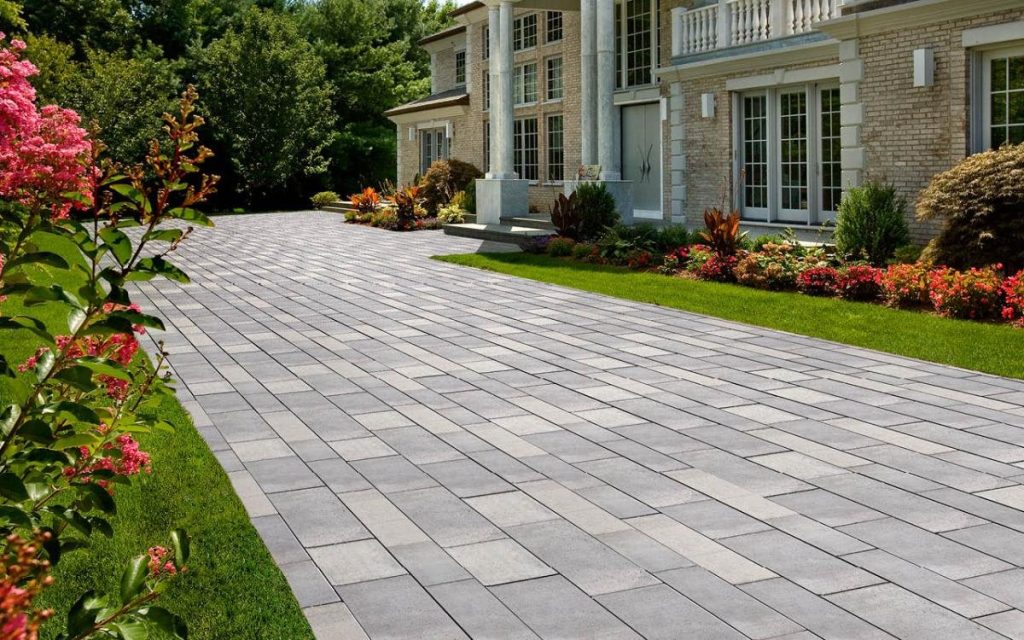Concrete pavers have gained immense popularity among homeowners and landscape designers alike. Known for their durability and aesthetic appeal, these paving stones provide a versatile solution for various outdoor applications. This article delves into what concrete pavers are, their benefits, installation processes, maintenance tips, and more.
What Are Concrete Pavers?

Concrete pavers are pre-cast blocks made from concrete that can be used to create stunning walkways, patios, driveways, and other outdoor areas. They come in various shapes, sizes, and colors, allowing homeowners to customize their outdoor spaces. Unlike poured concrete, which creates a continuous surface, concrete pavers are installed individually, giving them a unique advantage in terms of repair and design flexibility.
Benefits of Using Concrete Pavers
Durability
Concrete pavers are renowned for their strength and longevity, often lasting between 25 to 50 years with proper care. They can withstand heavy loads and are resistant to cracking, making them ideal for high-traffic areas.
Aesthetic Variety
Available in a wide range of colors, shapes, and textures, concrete pavers can complement any style of architecture or landscape. Homeowners can mix and match different paver designs to create unique patterns and looks.
Ease of Repair
One of the standout features of concrete pavers is their ease of repair. If a paver becomes damaged, it can be removed and replaced without disturbing the surrounding stones, making maintenance a breeze.
Cost-Effectiveness
While the initial cost of concrete pavers may be higher than some alternatives, their longevity and low maintenance requirements often make them a more economical choice in the long run.
Environmental Benefits
Concrete pavers can be designed to be permeable, allowing rainwater to drain through them and reducing runoff. This feature makes them an environmentally friendly option for landscaping.
Installation Process
Installing concrete pavers can be a rewarding DIY project, but many choose to hire professionals for the best results. Here’s a basic outline of the installation process:
- Preparation: Clear the area where the pavers will be installed, removing any grass or debris.
- Base Layer: Add a base layer of gravel or sand to create a stable foundation.
- Laying Pavers: Begin laying the pavers in your desired pattern, ensuring they are level and properly spaced.
- Jointing Material: Fill the joints between pavers with sand or polymeric sand to prevent movement.
- Sealing (Optional): Consider sealing the pavers for added protection against stains and weather.
Maintenance Tips for Concrete Pavers

To keep your concrete pavers looking their best, follow these maintenance tips:
- Routine Cleaning: Sweep away debris regularly and wash with a mild detergent and water as needed.
- Weed Control: Use a weed killer or regularly pull out weeds that may sprout between pavers.
- Sealing: Apply a sealant every few years to protect against stains and fading.
Cost of Concrete Pavers
The cost of concrete pavers can vary significantly based on factors such as materials, design, and installation. Typically, paver costs range from $3 to $10 per square foot, while installation costs can be an additional $30 to $40 per square foot. Various factors, including design complexity and site conditions, can influence the final price.
Popular Brands and Products
When considering concrete pavers, it’s essential to explore various brands known for their quality. Some popular choices include:
- Paver brands: A variety of manufacturers offer unique styles and quality options that cater to different budgets and design preferences.
- Customer Reviews: Reading customer reviews can provide insights into the durability and aesthetics of specific products.
Concrete Pavers vs. Other Options
Concrete pavers offer unique advantages compared to alternatives such as poured concrete, brick pavers, and natural stone. Each option has its pros and cons, making it essential for homeowners to evaluate their specific needs.
Concrete vs. Poured Concrete
- Pavers: Easier to repair, more aesthetic options.
- Poured Concrete: Typically cheaper but prone to cracking.
Concrete Pavers vs. Brick Pavers
- Pavers: More durable and less maintenance.
- Brick: Offers a traditional look but may require more care.
Concrete Pavers vs. Natural Stone
- Pavers: More cost-effective and customizable.
- Natural Stone: Unique appearance but often more expensive.
FAQs About Concrete Pavers
How long do concrete pavers last?
Concrete pavers can last between 25 to 50 years with proper maintenance.
Can I install concrete pavers myself?
Yes, many homeowners choose to install concrete pavers themselves, but professional installation can ensure the best results.
Are concrete pavers slippery when wet?
While concrete pavers can become slippery when wet, choosing textured surfaces can minimize this risk.
What colors are available?
Concrete pavers come in various colors and finishes, allowing for extensive customization.
Conclusion
Concrete pavers provide a durable, aesthetically pleasing, and versatile solution for outdoor spaces. Whether you’re looking to create a beautiful patio, walkway, or driveway, concrete pavers offer numerous benefits that make them a smart choice for any landscaping project.
